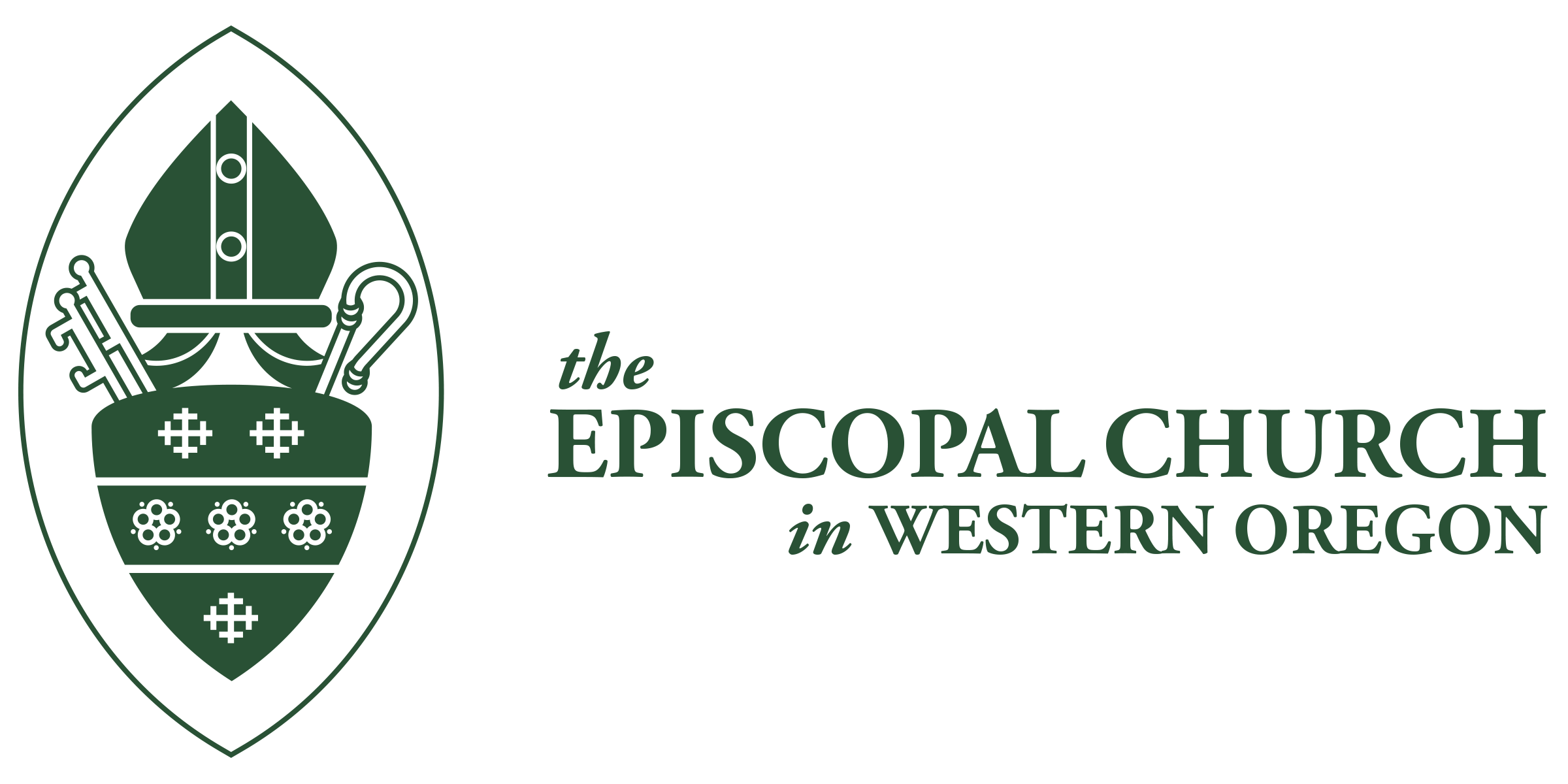When the Rev. Peter Fritsch interviewed with the folks at St. Christopher Episcopal Church in Port Orford, he asked if they were serious about growing as a church. “I told the vestry that I wasn’t interested in being a chaplain and maintaining a status quo of five on a Sunday; that didn’t interest me at all,” said the Rev. Fritsch. “However, if they were serious about growing spiritually and numerically and willing to market themselves, I was interested.”
The church agreed. And so, in 2022, with the financial support of a three-year Episcopal Bishop of Oregon Foundation (EBOF) grant, the Rev. Fritsch and his wife, Monika Farkas, moved to the small southern coastal town to begin a journey of rejuvenation as their one-third-time priest.
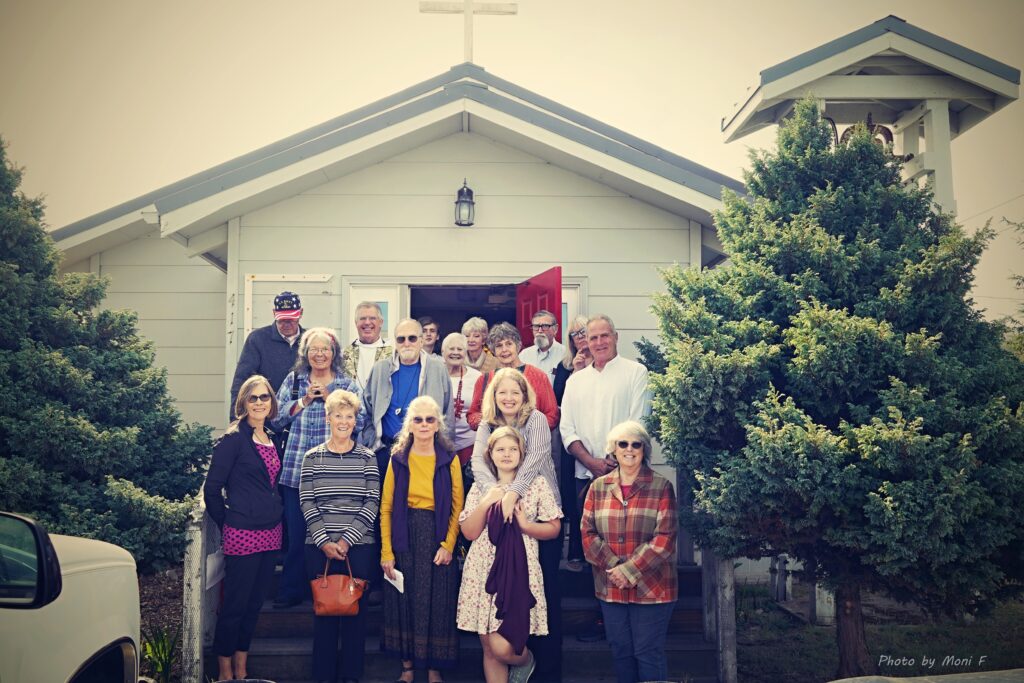
The town of Port Orford is situated on a peninsula between the cities of Bandon and Gold Beach on the southern coast of Oregon. With around 1,250 residents, this beachside village is filled with “former loggers, fishermen, and retired hippies,” said the Rev. Fritsch. Port Orford has eight churches within the town limits, the largest being an evangelical church with a fundamentalist approach and an average Sunday attendance of around 150. “We are an alternative [to that church],” the Rev. Fritsch said.
However, most of the “retired hippies” in the community are dealing with religious trauma and do not have the desire to enter a church building, let alone engage in explicit Christian-focused conversation. “We have to extend beyond our building [and traditional worship],” the Rev. Fritsch said.
And that is exactly what they have done.
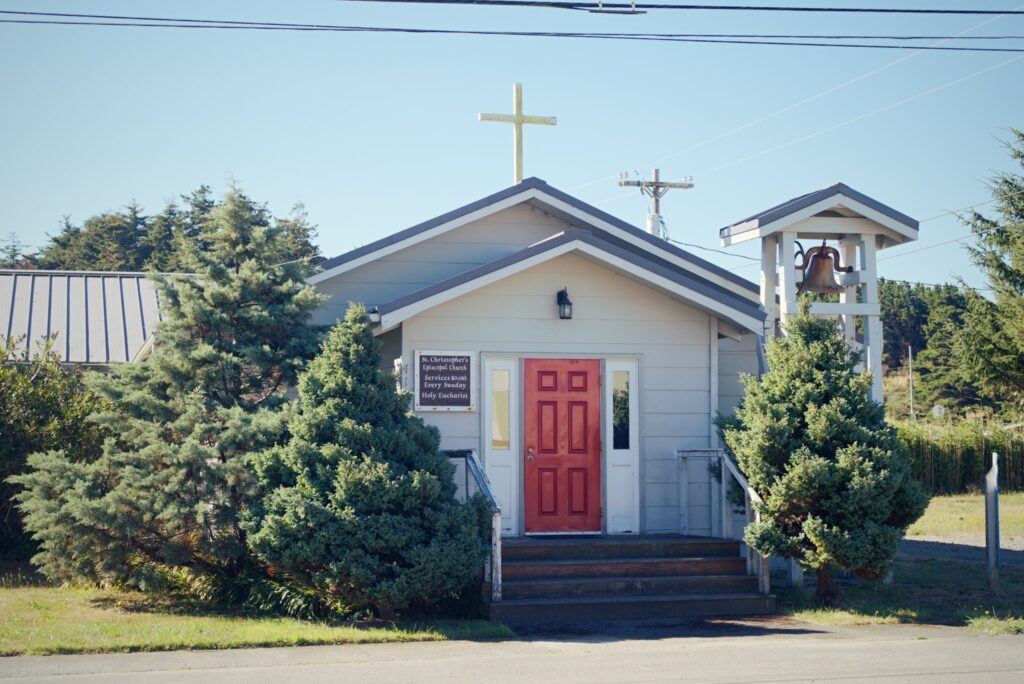
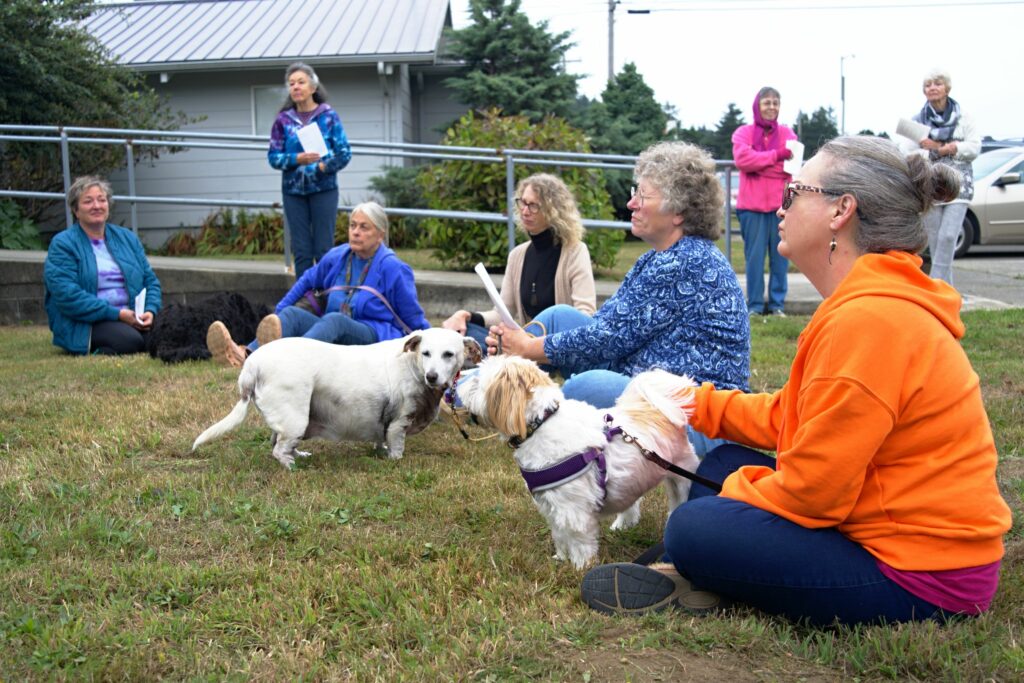
Beginning with a liturgical classic, the congregation hosted a St. Francis Day Animal Blessing and intentionally invited community members to attend. A few showed up with their dogs in the church’s parking lot for the blessing. “They didn’t stay for the rest of the service, but this was a first for the congregation,” said the Rev. Fritsch.
While the animal blessing was a starting point, if the congregation wanted to grow, they had to get serious about looking at the demographics of their community and catering their ministry to fit the needs of their neighbors. This includes thinking outside the church-box and finding ways to minister that respect the background and hesitancies of the community.
Port Orford, along with other towns along the southern coast, suffers from a lack of affordable and reliable healthcare, leaving older residents unable to seek care and deal with chronic and terminal illnesses. These stresses have formed a communal interest in exploring life beyond this one.

The Rev. Fritsch, a trained dreamworker, began hosting classes on natural spirituality, dream interpretation, death and dying, and the afterlife at the local library. “The librarian said if I got two people at the class, that would be a success,” he said, “I had 20, mostly unchurched members of the community.”
He begins each course by introducing himself and stating that these courses are a ministry of St. Christopher’s. “I mentioned I was from the church but didn’t explicitly invite people to come to our church,” he said. “I didn’t want to push it on them.” Hosting these courses at the public library meets the attendees in a safe, neutral space. Intentionally not focusing on promoting church services allows for organic curiosity to evolve. And it has paid off – St. Christopher has around eight new members who have joined the congregation because they attended a course.
“We have eight new members that regularly attend services and another eight that occasionally have dropped by,” he said.
The courses at the library further increased St. Christopher’s visibility to the community and the surrounding towns. However, their Folk Sing-along Potluck has been the pivotal turning point for the congregation.
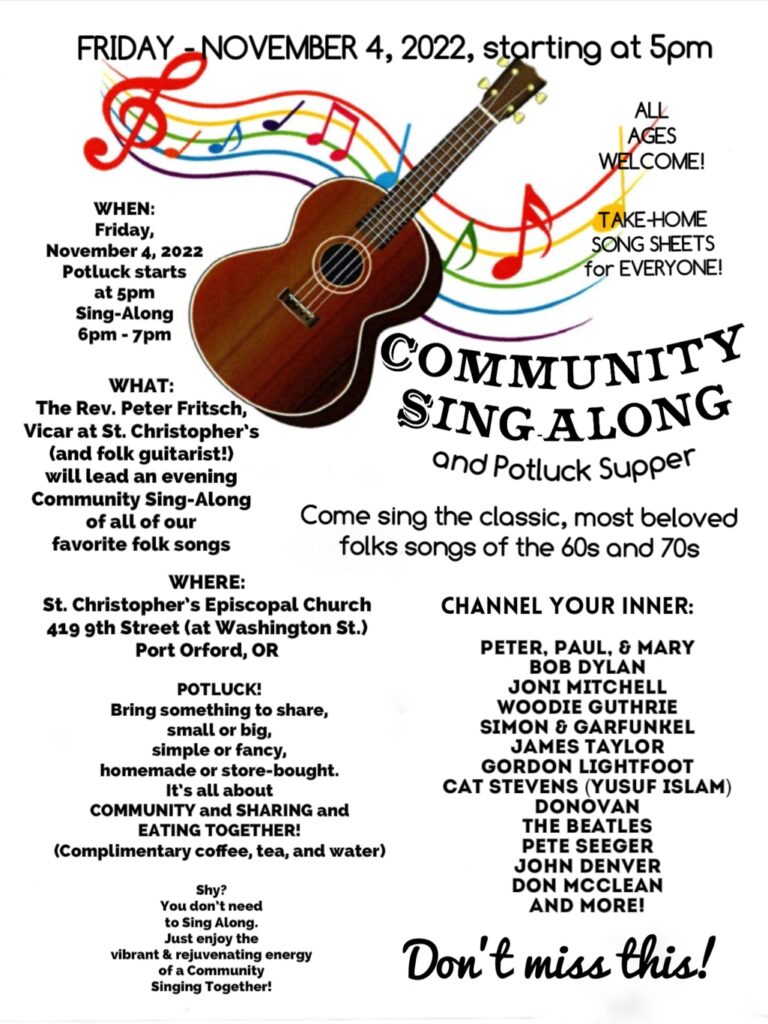
To meet the retired loggers, fishermen, and hippies where they are, the church decided to host a 60s-70s music sing-along. They published a flyer on Facebook and invited neighbors. With his guitar in hand, the Rev. Fritsch developed song sheets with classics from James Taylor, Bob Dylan, Peter, Paul, and Mary, and the Beatles, to name a few.
The evening included a potluck, so attendees were encouraged to bring anything from a bag of chips to a home-cooked meal. The first event in 2022 had over fifty people in attendance. The two consecutive events recorded similar numbers as well.
“It has really developed a strong sense of community and put St. Christopher on the map in the town,” he said.
The Rev. Fritsch does offer a brief “commercial,” as he called it, during the sing-along. “I tell them about the childhood handprints on the church’s entry ramp made by a parishioner attending the sing-along,” he said. “I tell them the history of this church and how it was a staple in the community for decades.”
During a break from the singing, the Rev. Fritsch invites folks to explore the church and the nave – which he mentions is open to the community at any time, day or night, for them to come and rest and find silence.
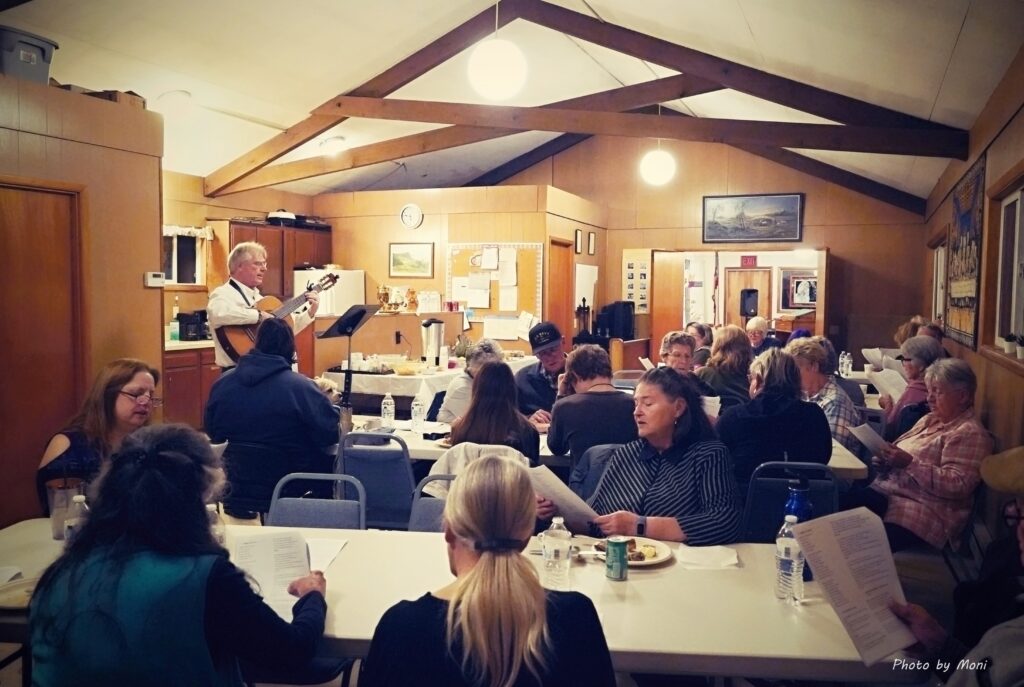
“St. Christopher’s is, and has been since 1877, a sacred space for the whole village,” he said. This unconditional hospitality that focuses on creating a space for the community rather than an outreach from the congregation to the community has genuinely shifted the reception of St. Christopher. The Rev. Fritsch shared that the respected librarian said, “St. Christopher is coming alive again.”
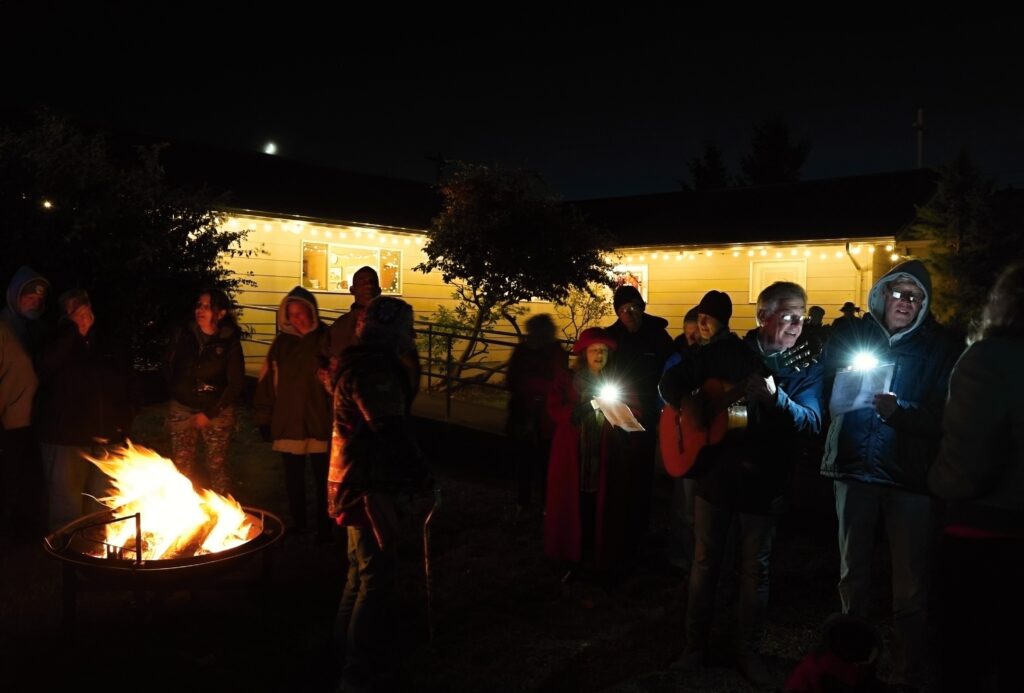
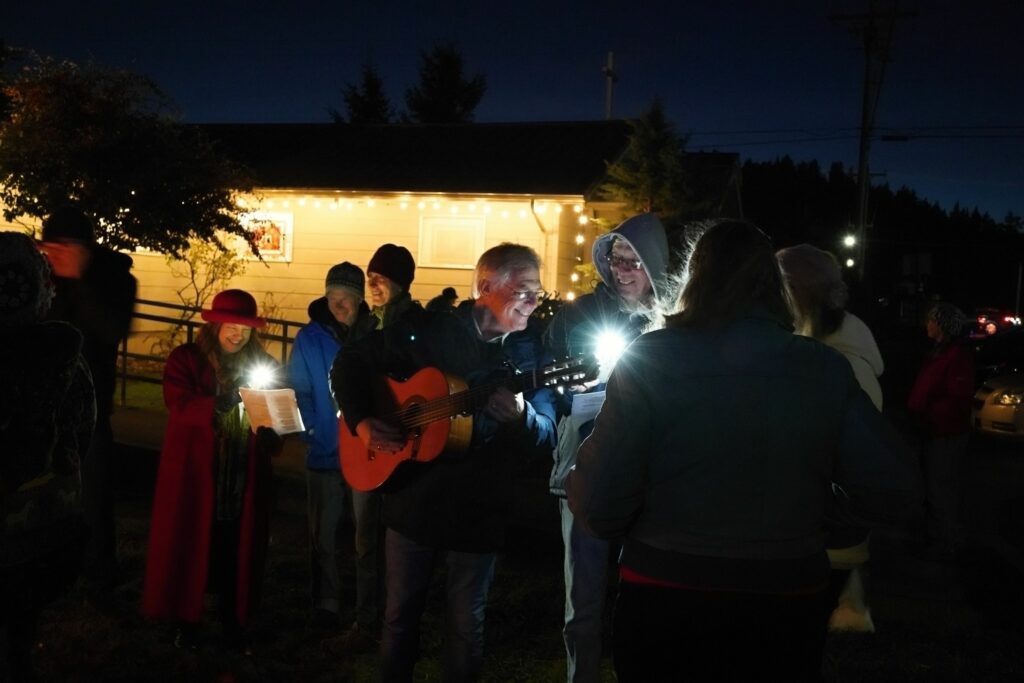
For the second winter in a row, the Port Orford Arts Council asked St. Christopher if they would host the town’s crab-pot Christmas tree in their yard. A large structure built of commercial crab-pots stacked to form the shape of a tree with string lights and buoys hanging as ornaments. The “tree” lighting had over 150 attendees. “It is a way to bring people to the church and has further increased visibility,” the Rev. Fritsch said. In partnership with other community members, the congregation hosted Christmas Carols, a bonfire, and food and cozy drinks inside the church during the event.


What is happening in Port Orford is a no-strings-attached community-building plan that considers the town’s demographics. Port Orford is not a booming town of young families, and the few young families there are in town attend the evangelical church. The congregation of St. Christopher knows this and has created spaces to nurture their neighbors’ shared values and experiences, most of whom are Boomers.
This small church in a small town is having a big impact on the lives of its residents by providing places of emotional, spiritual, and communal growth that meet the community exactly where they are. St. Christopher is coming alive again.
